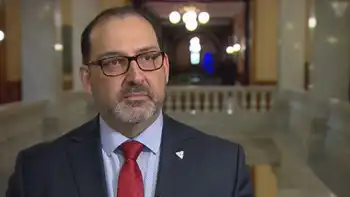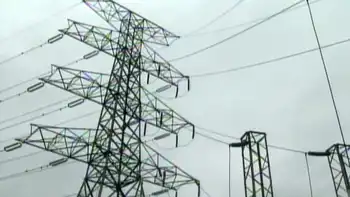“Green” protectionism creeps into U.S. legislation
The Chinese get it. This week, a top advisor to the Chinese government warned that a proposed tax levied on imports to cover carbon contained in U.S.-bound products "smells like protectionism" and threatened to challenge the law at the World Trade Organization.
Now, Jim Prentice, Canada's Environment Minister, appears to get it, too.
He said the border tax proposed in legislation introduced into the House of Representatives by California Democrat Henry Waxman "is an issue."
The legislation sets out to penalize countries with less-stringent carbon standards, creating what Steven Chu, the U. S. Energy Secretary, has called "a level playing field."
Mr. Prentice acknowledges that there are no indications that Canada will be exempt from what are known euphemistically as "border adjustments."
Speaking to the Post from a G8 meeting of environment ministers in Sicily, Mr. Prentice said he will raise the issue of border taxes in Washington next month, and is under no illusion how crucial a satisfactory outcome is for Canada.
"This will have fundamental consequences for Canadian hydro, oil and gas and everything in between, including the goods and services that we export that contain those commodities," he said.
Mr. Prentice is trying to get out ahead of the Americans by finalizing the emission rules covering the automotive, electricity and industrial sectors by the end of the year.
Both Canada and the United States have the goal of cutting greenhouse gas emissions by 20% by 2020 from 2005-6 levels.
The Canadian hope is that similar target levels will mean that we are exempt from new import taxes by the time we negotiate a continental cap-and-trade system with the Americans next year, after both countries have put in place their domestic policies.
"These details need to be worked out but if there was a similar regime in Canada and the U. S., there would be no border adjustment necessary," he said.
The problem for Mr. Prentice is that, even if Canadian businesses are not hit by a new border tax, they are still likely to be bludgeoned by the new U. S. legislation. That's because the way the Waxman law is envisaged, it will transfer wealth from exporting countries to the United States to pay for American efforts to fight climate change.
Under a cap-and-trade system, polluters will be issued generous allowances, and if they have excess quota they can trade it for cash. The legislation is likely to give U. S. polluters far more quota than they need, which they can then sell to American distributors of imported goods, with the proceeds being used to upgrade old greenhouse gas spewing plants.
The net result is that a Canadian aluminum company exporting to the United States would have to buy greenhouse gas allowances from rival, and quota-rich, American smelters to cover emissions generated in Canada.
This, despite the fact that Canadian smelters discharge half the greenhouse gases emitted by their American competitors.
Having signed on to a continental cap-and-trade system, there would be no recourse to the North American Free Trade Agreement or the WTO. Mr. Prentice said there needs to be a "fair distribution" of the cost of emitting carbon between those who produce a product and those who consume it — that is, in the case of energy, between Canada and the United States.
But while he touts the good working relationship between the Harper and Obama governments, in this instance, as in so many others, we are policy-takers, not makers. Climate-change law in the United States is designed to get foreigners to pay for any pain that might be incurred in fighting global warming.
By signing up for an agreement where the U. S. controls the market through allowance allocation, Canada will be party to a system that has nothing to do with going green and everything to do with transferring jobs and wealth to the United States.
Related News

Britain Goes Full Week Without Coal Power
LONDON - For the first time in a century, Britain weaned itself off of coal consumption for an entire week.
Reuters reported that Britain went seven days without relying on any power generated by coal-powered stations.
The accomplishment is symbolic of a shift to more clean energy sources; Britain was home to the first coal-powered plant back in the 1880s.
Today, Britain has some aggressive plans in place to completely eliminate its coal power generation permanently by 2025. In addition, Britain aims to cut its total greenhouse gas emissions by 80 percent from 1990 levels within the next 30 years.
Natural gas was the…





